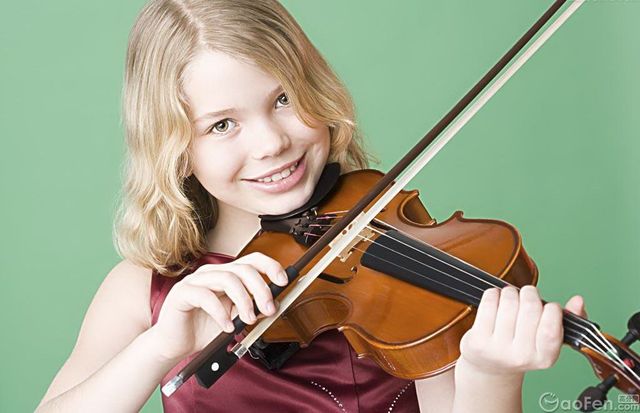(单词翻译:单击)
A problem with this view, though, is that the closer psychologists look at the careers of the gifted,
然而,这种观点存在的问题是,心理学家越是深入考察天才们的人生经历,
the smaller the role innate talent seems to play and that the bigger the role preparation seems to play.
越是发现天赋的作用越来越小,而后天储备的作用却越来越明显。
Exhibit A in this argument is a study done in the early 1990s by the psychologist K. Anders. Ericsson
首先对天才展开争论的案例,是在20世纪90年代,心理 学家K.安德斯.埃里克森
and two colleagues at Berlin's elite Academy of Music.
和他的两个同事在柏林的顶级音乐学院做的一个试验。
With the help of the Academy's professors, they divided the school's violinists into three groups.
在学院一些教授的帮助下,他们把学院学习小提琴演奏的学生分成三个组。
In the first group were the stars, the students with the potential to become world-class soloists.
第一组是学生中的明星人物,具有成为世界级小提琴演奏家的潜力;
In the second were those judged to be merely "good".
第二组的学生只被大家认为“比较优秀”,
In the third were students who were unlikely to ever play professionally
第三组学生的小提琴演奏水平被认为永远不可能达到专业水准,
and who intended to be music teachers in the public school system.
他们将来的目标只是成为一名公立学校的音乐教师。

All of the violinists with were then asked the same question:
然后,所有学习小提琴的学生都被问及一个问题:
over the course of your entire career, ever since you first picked up the violin, how many hours have you practiced?
在你的一生中,从举起小提琴开始,你练习过多少个小时?
Everyone from all three groups started playing at roughly the same time, around the age of five.
所有的人,三个组所有的学生,都开始回放已经过往的时间,差不多都是从5岁的时候开始。
In those first few years, everyone practiced roughly the same amount, about two or three hours a week.
在开始学习小提琴的几年里,每个人练习的时间几乎都是一样——每周大约2~3个小时。
But around the age of eight, real differences started to emerge.
但是到8岁左右,差别开始显现出来。
The students who would end up as the best in their class began to practice more than everyone else,
一个班级最为出色的学生练习的时间开始多于其他学生:
six hours a week by age nine, eight hours a week by age twelve,
9岁的时候每周6小时,12岁的时候每周8小时,
sixteen hours a week by age fourteen, and up and up, until by the age of twenty,
14岁的时候每周16小时,这样一步一步增加练习时间,一直到20岁的时候,他们还在不断练习
there were practicing, that is, purposefully and single-mindedly playing their instruments with the intend to get better,
他们的练习带有明确的目的和个人的思想,从而表演得更为出色
well over thirty hours a week.
这样的练习每周超过30个小时。
In fact, by the age of twenty, the elite performers had totaled ten thousand hours of practice over the course of their lives.
实际上,到20岁的时候,这些卓越的演奏者已经在他的生命中练习了 10,000个小时。
By contrast, the merely good students had totaled eight thousand hours,
与这些卓越者相比,那些比较优秀的学生练习的时间是8,000个小时,
and the future music teachers had totaled just over four thousan hours.
而那些未来的音乐教师,他们的练习时间只有4,000个小时。


